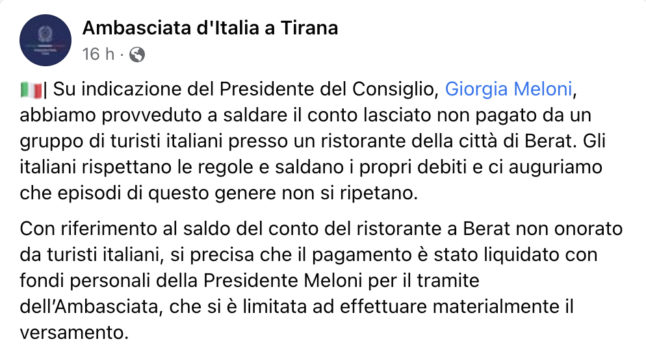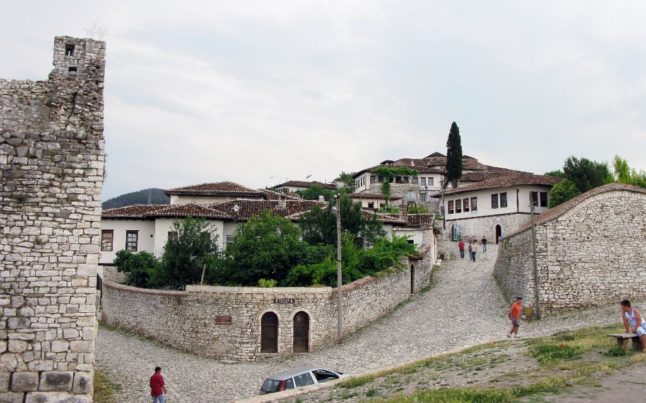News of the tourists’ decision to run off after dinner in the picturesque central city of Berat made headlines in Albania’s media, and featured heavily on social networks.
ripresi dalle telecamere di videosorveglianza 4 italiani in vacanza a Berat in Albania scappano dal ristorante senza pagare…la premier Meloni decide di pagare il conto tramite l'ambasciata italiana…e Salvini gli ha mandato un taxi…#Albania #cena #Meloni #Ambasciata #Berat pic.twitter.com/GMxpyN7urt
— Sirio (@siriomerenda) August 18, 2023
Albanian Prime Minister Edi Rama revealed he had raised the incident with Meloni when they met this week while she herself was holidaying in his country – and she immediately stepped in.
According to Rama’s account of the event, Meloni “made a face and asked the ambassador to ‘go and pay the bill for these idiots, please, and put out a statement!. Italy cannot lose respect like this!'”
The Italian embassy in Albania confirmed on Friday it had acted on her orders and paid what Italian media said had been an 80 euro ($87) tab for four people.

“On the recommendation of the prime minister, Giorgia Meloni, we settled the bill left unpaid by a group of Italian tourists at a restaurant in the city of Berat,” it said in a statement.
“Italians respect the rules and pay their debts, and we hope that this kind of episode will not happen again.”
Several Italian news outlets have reported a surge in Italian tourists heading across the Adriatic Sea for their holidays this year, in search of cheaper deals and quieter beaches.



 Please whitelist us to continue reading.
Please whitelist us to continue reading.
Member comments